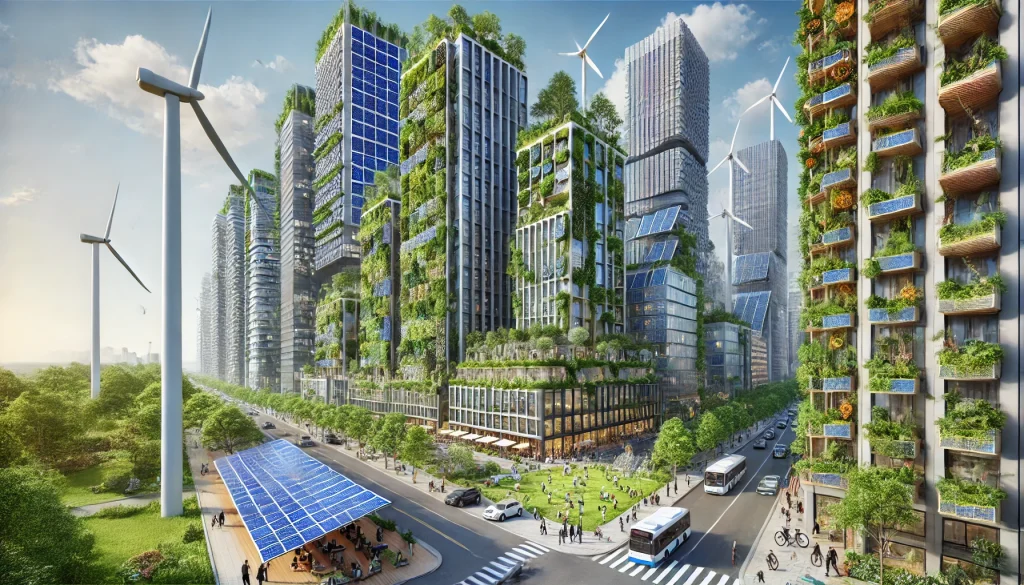Sustainable investments have emerged as a pivotal topic in the financial world, especially in the United States. With growing awareness about climate challenges, investors are increasingly looking toward opportunities that promise both economic returns and positive environmental impacts. Sustainable investments not only focus on financial gains but also adhere to the principles of environmental, social, and governance (ESG) criteria.
The rise of sustainable investments in the USA is driven by both necessity and innovation. As traditional industries face scrutiny due to their carbon footprints, there’s a pressing need for new financial strategies that align with eco-friendly goals. Sustainable investments bridge this gap, offering a path forward that is both economically viable and environmentally responsible. Furthermore, as the effects of climate change become increasingly evident, the urgency to adapt and reform financial systems grows.
Why sustainable investments matter for the US economy and environment

Sustainable investments play a critical role in shaping the US economy and its environmental landscape. These investments channel capital into sectors that contribute to reducing carbon emissions and promoting sustainable practices. By focusing on climate-friendly investments, the US can address environmental issues while simultaneously boosting economic growth. The concept of “green finance” is spearheading this transformation, aiming to blend profitability with responsibility.
Moreover, sustainable investments are instrumental in creating new job opportunities, particularly in emerging green industries. Sectors such as renewable energy, sustainable infrastructure, and agriculture are experiencing significant growth. By prioritizing sustainable economy initiatives, the US not only tackles climate change but also strengthens its labor market.
Economic impact of green finance
Green finance fosters economic resilience by encouraging investments in sectors that support long-term sustainability. This includes industries like renewable energy, which reduce dependency on fossil fuels, thereby stabilizing energy prices and enhancing energy security. By integrating sustainable investments into the mainstream economy, the US can mitigate the risks associated with climate change and promote a more stable financial landscape.
Additionally, investing in climate-resilient infrastructure ensures that resources are allocated to projects designed to withstand environmental challenges. This forward-thinking approach not only prevents losses from natural disasters but also stimulates economic growth through infrastructure development.
Environmental benefits from sustainable economy initiatives
Investments focusing on sustainability yield substantial environmental benefits. By redirecting funds towards initiatives that prioritize environmental health, sustainable investments help reduce greenhouse gas emissions and conserve natural resources. The adoption of clean technologies further supports these goals by promoting innovations that enhance energy efficiency and reduce pollution.
For example, investments in renewable energy sources such as solar and wind power significantly cut emissions while providing a steady power supply. Sustainable agriculture practices also play a vital role in conserving biodiversity and enhancing soil health. These efforts collectively represent a strategic shift towards an environmentally conscious investment strategy that addresses current challenges while preparing for future demands.
Key sectors driving sustainable investments in the US
The realm of sustainable investments encompasses several dynamic sectors, each contributing uniquely to the financial ecosystem. Key among these is renewable energy, including solar, wind, and hydropower. By investing in these sectors, the US isn’t just embracing cleaner energy; it’s also supporting technological advances that propel the nation towards energy independence and sustainability.
Another critical area is clean technology, which encompasses a broad range of innovations designed to reduce environmental impacts. From sustainable transportation options to energy-efficient appliances, clean tech leads the charge in redefining traditional industries.
The role of ESG and impact investing
Environmental, Social, and Governance (ESG) criteria are central to assessing the sustainability and ethical impact of an investment. By evaluating companies based on these metrics, investors can support businesses committed to responsible practices.
Impact investing, in particular, aims to generate measurable social and environmental benefits alongside financial returns. By prioritizing these aspects, the investment community can drive positive change, supporting projects that align with global sustainability goals. The integration of ESG considerations in investment strategies is increasingly seen as a competitive advantage, signaling a shift in how investments are appraised and implemented.
Sustainable agriculture and conservation efforts
Sustainable agriculture represents a transformative approach to food production, emphasizing ecological balance and resource efficiency. By investing in sustainable farming techniques, investors support practices that improve soil health, enhance biodiversity, and reduce carbon emissions.
Conservation efforts are equally vital, aiming to preserve natural habitats and protect biodiversity. Investments in this sector fund projects such as reforestation, habitat restoration, and wildlife protection. By channeling funds into conservation initiatives, sustainable investments facilitate the stewardship of ecosystems, ensuring the preservation of nature for future generations.
Government policies and incentives boosting green investments
The United States government plays a significant role in promoting sustainable investments through various policies and incentives. For instance, the Inflation Reduction Act provides critical support for projects aimed at enhancing energy efficiency and reducing emissions.
Furthermore, tax incentives for clean energy initiatives encourage businesses and individuals to adopt sustainable practices. These incentives reduce the financial burden associated with transitioning to renewable energy sources, making them more accessible. By fostering green investments in the US, the government not only addresses environmental concerns but also promotes economic innovation and growth.
